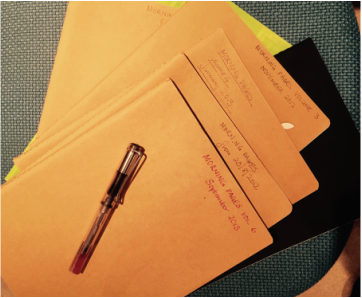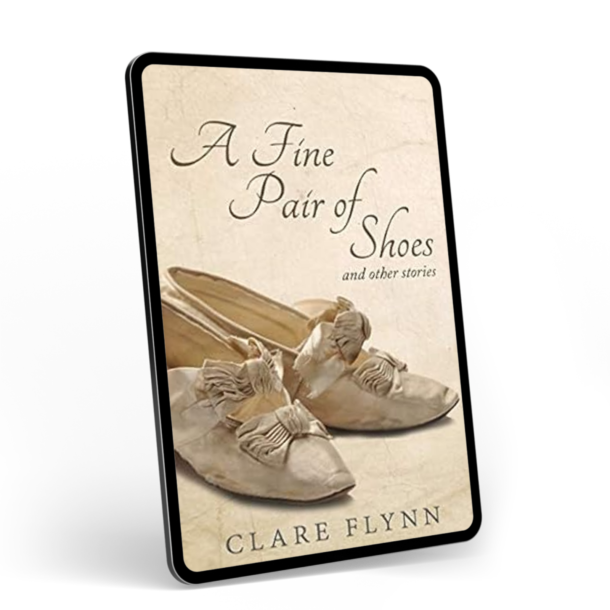I often get asked if I suffer from Writer’s Block and if so how I get over it?
Disclaimer upfront! I don’t believe in Writer’s Block. I don’t think it exists as a condition. It’s no more than a euphemism for one of the following conditions – laziness, procrastination, distraction/ lack of concentration, displacement activity – there are probably other causes – but those are the ones I’m guilty of! I subscribe to Will Self’s view that “Writing is a muscular action and, like any other, all you need to do is exercise the muscles.”
Some celebrated authors claimed to suffer from writer’s block – including Hemingway and Virginia Woolf, but most successful writers have excellent coping strategies for dealing with the conditions listed above. Look at Stephen King who churns them out as though his life depended on it (it probably does). Or John Irving who gave up drinking everything but beer in order to be sober enough to write for longer – then gave up beer as well, conscious of the clock ticking and memory fading as he ages (seventy-three this year). Hell, look at William Shakespeare – 37 plays and 154 sonnets scratched out with a feather quill.
And my top tips for conquering the dreaded dry periods? I only have four. But if you use them I promise you they’re all effective.
1 Write Morning Pages
 Free-write every morning before you do anything else. I have long been a fan of the method described by Julia Cameron in The Artists Way and it never fails to work for me – but it does require discipline and you need to build it up as a habit. Every morning as soon as you wake up (set the alarm half an hour early), grab a pen or pencil and a notebook and write until you’ve filled three pages. I write with a fountain pen in Moleskin notebooks – the large unruled brown paper-covered exercise books. Write anything – whatever comes into your head – describe the dream you’ve just been rudely awakened from. Set out what you want to do today. Record the events of the previous day. Rant and rave about whoever’s done you wrong, whether that’s the utility company, the boiler repairman who hasn’t turned up, the evil traffic warden, your treacherous best friend or the nasty neighbour. Or use it to write what you would be writing if you didn’t happen to think you were blocked! Alternative plot ideas, fragments of dialogue, little situations, overheard conversations.
Free-write every morning before you do anything else. I have long been a fan of the method described by Julia Cameron in The Artists Way and it never fails to work for me – but it does require discipline and you need to build it up as a habit. Every morning as soon as you wake up (set the alarm half an hour early), grab a pen or pencil and a notebook and write until you’ve filled three pages. I write with a fountain pen in Moleskin notebooks – the large unruled brown paper-covered exercise books. Write anything – whatever comes into your head – describe the dream you’ve just been rudely awakened from. Set out what you want to do today. Record the events of the previous day. Rant and rave about whoever’s done you wrong, whether that’s the utility company, the boiler repairman who hasn’t turned up, the evil traffic warden, your treacherous best friend or the nasty neighbour. Or use it to write what you would be writing if you didn’t happen to think you were blocked! Alternative plot ideas, fragments of dialogue, little situations, overheard conversations.
You don’t even have to use what you’ve written. Most of the time my notebooks land on the shelf unread when I’ve filled them. It doesn’t matter. The act of writing like that gets it all out of your system, stops you brooding, frees you up. I find when I don’t write my morning pages I have less energy – and occasionally get depressed. In fact I’d highly recommend the practice to anyone who suffers periodically from depression. Try it for a few weeks and I promise you’ll notice the difference.
2 Digital Dieting
The next method addresses the scourge of modern life – and the independent writer’s life in particular – digital distraction.
I write with Scrivener and tend to use the full blackout screen, which helps but, unless I switch off the wifi, I type a few words then have a burning need to go into a web browser to check a historical fact, a date, a geographic location, distance between cities – or even to find ideas for a character’s name. Then of course it doesn’t stop there. Once I’ve stepped onto Planet Browser I’m off – what’s that email that’s just pinged into my box? Is that a new Facebook post? Maybe I should check my sales figures? Any new reviews for my new book? And so it goes.
The act of disconnecting for a fixed time period – or until I’ve hit my target word count, forces me to focus and to knuckle down to the task in hand. And the name or date that matters so much? I just add a few XXXs and go back and fill it in later. Some people use apps that block the Internet for a set time period – but I find just knocking off the wifi does it for me. So turn digital distraction into digital dieting (or Digital Fasting as Joanna Penn calls it – but I can’t resist alliteration) and let the creative juices flow.
3 Feed Your Brain
 Also important is the old adage “All work and no play makes Clare a dull girl.” To fill your brain with ideas you first have to feed it. Brains eat stimulus. That means taking your brain out to meet the world for a while. Maybe a short walk is enough. A trip to the post office. A swim or a workout at the gym. But as well as these regular little brain snacks, I find I need to take mine out for a big blowout every now and then. I often write about these little jaunts on this blog – but not always. Sometimes they’re directly connected to the book I’m writing – for example a recent trip to the Ragged School Museum – and a planned one to the Dental Museum (don’t ask!). More often they’re completely random.
Also important is the old adage “All work and no play makes Clare a dull girl.” To fill your brain with ideas you first have to feed it. Brains eat stimulus. That means taking your brain out to meet the world for a while. Maybe a short walk is enough. A trip to the post office. A swim or a workout at the gym. But as well as these regular little brain snacks, I find I need to take mine out for a big blowout every now and then. I often write about these little jaunts on this blog – but not always. Sometimes they’re directly connected to the book I’m writing – for example a recent trip to the Ragged School Museum – and a planned one to the Dental Museum (don’t ask!). More often they’re completely random.
As well as my novel in progress, Cynara’s Shadow, I’m also working on a non fiction book, A Breath of Fresh Air, on this very topic – all about how doing new things, visiting new places, enjoying new experiences helps the brain to make new connections and to have better ideas.
4 Write First
The last tip is hard to do, but super effective. It addresses the problem of displacement activity. Don’t allow yourself to do any other computer-based or writing related task until you’ve completed your quota of writing – whether that’s a set word count, if that’s how you work, or writing a section or chapter, or maybe cracking a note plot issue. Once it’s done, you can relax over the spreadsheets, the ironing or play CandyCrush till your eyes pop out.
Have a try and let me know how you get on. What tips do you have to resolve the mythical condition of writer’s block?


0 Comments